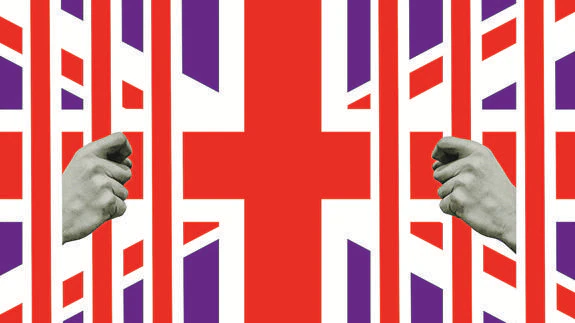So much has happened since 23 June 2016 that it is hard to believe that more than four and a half years have passed. The Brexit referendum has affected not only the United Kingdom but also the whole of the European Union and especially regions or provinces, such as Malaga, which have such close links to British tourism, both holiday and residential.
Right from the start, the consequences for the Costa del Sol became obvious. The number of tourists has not really changed much, but the number of residents did. The exodus that began in 2013, due to an increase in living costs in Spain, continued as a result of Brexit until 2019, when there was a brief respite in a decline that had lasted almost seven years.
According to figures published by the National Institute of Statistics (INE) a few weeks ago, on 1 January 2020 the number of British people had risen by more than 2,000 (to a total of around 50,000), confirming an evident change in the trend which became accentuated towards the end of last year.
Sources such as Brexpats in Spain (an association for UK citizens in Andalucía) have said that in December 2020 there had been an influx of British people who had decided at the last moment that they wanted to be in the EU. To take advantage of the relative ease of moving here at that time, they had to be in Spain and to have started their application for official residence before 31 December.
Although this perception by Brexpats in Spain will need to be confirmed by the government's official statistics in the forthcoming months, other administrations such as Mijas council (where 25 per cent of British people in Malaga province are registered as living) agree. According to the data from Mijas, the number of UK citizens in the municipality has increased by almost ten per cent.
According to these sources, the majority of these British people already had a second home on the Costa del Sol, but not all of them did. Some decided to buy a home here in order to retire within the Schengen area, and selected Malaga province as the best place to be.
So, that's the good news. Although this change in trend completely goes against the predictions of the most pessimistic, there is still work to be done to firmly establish the Costa del Sol as a perfect destination for the post-Brexit world. As the most relevant voices in the British community have already said, the best way of doing this would be to extend the tourist visas issued by Spain for citizens of the UK.
Since the end of the transition period on 1 January, British people who are not officially resident in Spain and are not working here do not need a visa but are limited to spending a maximum of 90 days out of any 180 here even if they own a property. To comply with these new rules, after the 90-day period they have to return to the UK and cannot return to the Schengen area for another three months.
This seriously affects those who normally spend six months in each country, avoiding the cold of the UK winter and the excessive heat of the Spanish summer. These so-called 'swallows' now find themselves unable to spend those 180 consecutive days in their own property.
France and Portugal
The spokeswoman for Brexpats in Spain, Anne Hernández, warned recently that some governments, such as those in France and Portugal, are already considering issuing special visas so that British citizens could spend more time in their countries without having to apply for a residence permit. In the case of Portugal, its proximity and prices could mean competition for the Costa del Sol.
Anne Hernández says that many people from the UK who have kept their house in Spain after Brexit - or have only just bought one - could change their mind, sell their property and move to another country because it is in their interests to do so, even though they would much rather be here.
Although the Spanish government has made no official comment so far, a visa of this type would not be simple. With things the way they are at the moment, Spain would have to accept that citizens of other countries were living here for half of the year without paying taxes. In addition, there is the question of healthcare for those entitled to it, such as pensioners.
As things stand at present, this is the main problem, but not the only one. British residents on the Costa del Sol with no access to public healthcare do not know when they can have the Covid vaccine unless they go back to the UK for it, a question which neither administration has wanted to address so far.
While these are the short-term issues, the British community in Malaga is also preparing a campaign to persuade Spain to allow them to have dual nationality, something to which the UK has no objection, but which successive Spanish governments have always opposed.

Necesitas ser suscriptor para poder votar.